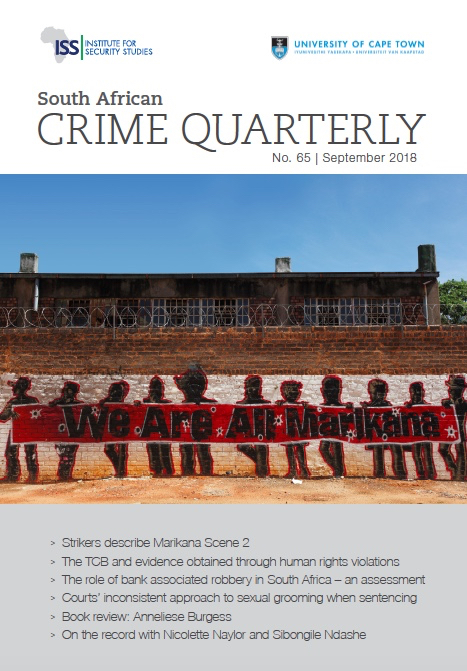In no certain terms: the court’s inconsistent approach to the role of sexual grooming when sentencing cases of the rape of children under 16.
DOI:
https://doi.org/10.17159/2413-3108/2018/i65a4473Abstract
This article considers whether evidence of sexual grooming influences decisions by South African courts when passing sentence on offenders who have been found guilty of sexual assault or rape of children. By analysing judicial decisions, the article considers three themes – the lack of violence, the apparent consent of a child under 12, and the appropriateness of correctional supervision. The article concludes that evidence of grooming should play a role in sentencing decisions, as it forms part of the nature of the crime that the court is required to consider.
Downloads
Downloads
Published
Issue
Section
License
Copyright (c) 2018 Author and Institute for Security Studies/UCT

This work is licensed under a Creative Commons Attribution 4.0 International License.
SACQ is licenced under a creative commons licence (CC BY) that allows others to distribute, remix, tweak, and build upon your work, even commercially, as long a they give appropriate credit, provide a link to the license, and indicate if changes were made. They may do so in any reasonable manner, but not in any way that suggests the licensor endorses you or your use.
Copyright for articles published is vested equally between the author/s, the Institute for Security Studies and the Centre of Criminology (UCT).




.png)